Filter by
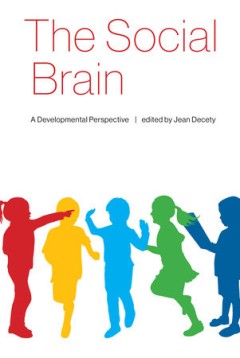
The social brain :a developmental perspective
"This new volume brings together a range of empirical and theoretical views from both developmental psychology and developmental neuroscience, and cover a core set of questions and topics that concern the development of the social mind. The basic topics about the origins, development, and biological bases of the human social mind include, but are not limited to, face and voice recognition, atta…
- Edition
- -
- ISBN/ISSN
- 0262358964
- Collation
- 1 online resource (xii, 426 pages) :illustrations (black and white).
- Series Title
- -
- Call Number
- -

After America's midlife crisis
A longtime community organizer outlines a way to reverse the fifty-year decline in social mobility and economic progress. Michael Gecan, a longtime community organizer, offers in this book a disturbing conclusion: the kinds of problems that began to afflict large cities in the 1970s have now spread to the suburbs and beyond. The institutional cornerstones of American life are on an extended …
- Edition
- -
- ISBN/ISSN
- 9780262258791
- Collation
- 1 online resource (128 pages).
- Series Title
- -
- Call Number
- -
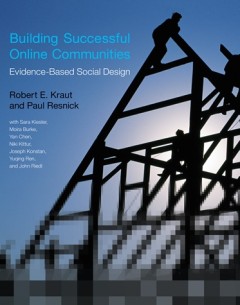
Building successful online communities: Evidence-based social design
Online communities are among the most popular destinations on the Internet, but not all online communities are equally successful. For every flourishing Facebook, there is a moribund Friendster—not to mention the scores of smaller social networking sites that never attracted enough members to be viable. This book offers lessons from theory and empirical research in the social sciences that ca…
- Edition
- -
- ISBN/ISSN
- 9780262298315
- Collation
- 1 online resource (xi, 309 pages) :illustrations
- Series Title
- -
- Call Number
- -
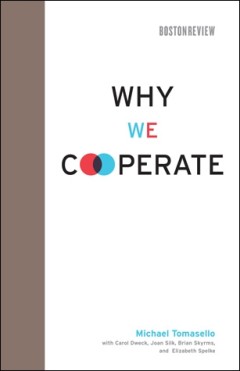
Why we cooperate
Drop something in front of a two-year-old, and she's likely to pick it up for you. This is not a learned behavior, psychologist Michael Tomasello argues. Through observations of young children in experiments he himself has designed, Tomasello shows that children are naturally—and uniquely—cooperative. Put through similar experiments, for example, apes demonstrate the ability to work togethe…
- Edition
- -
- ISBN/ISSN
- 9780262259255
- Collation
- 1 online resource (xviii, 206 pages).
- Series Title
- -
- Call Number
- -
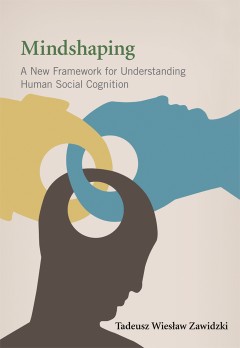
Mindshaping: A new framework for understanding human social cognition
"In this novel account of distinctively human social cognition, Tadeusz Zawidzki argues that the key distinction between human and nonhuman social cognition consists in our complex, diverse, and flexible capacities to shape each other's minds in ways that make them easier to interpret. Zawidzki proposes that such "mindshaping"--Which takes the form of capacities and practices such as sophistica…
- Edition
- -
- ISBN/ISSN
- 9780262313278
- Collation
- 1 online resource (xxiii, 317 pages)
- Series Title
- -
- Call Number
- -

Far-fetched facts : A Parable of Development Aid
This is a fictionalized ethnographic study of development aid in sub-Saharan Africa that focuses on technologies of inscription in the interactions of development banks, international experts and local managers.
- Edition
- -
- ISBN/ISSN
- -
- Collation
- 1 online resource (xxvii, 235 pages) :
- Series Title
- -
- Call Number
- -
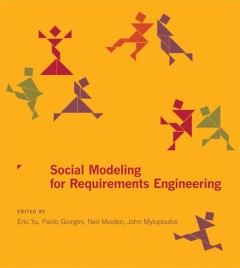
Social modeling for requirements engineering
Much of the difficulty in creating information technology systems that truly meet people's needs lies in the problem of pinning down system requirements. This book offers a new approach to the requirements challenge, based on modeling and analyzing the relationships among stakeholders. Although the importance of the system-environment relationship has long been recognized in the requirements en…
- Edition
- -
- ISBN/ISSN
- -
- Collation
- 1 online resource (vi, 736 pages) :
- Series Title
- -
- Call Number
- -

Invented Edens : Techno-Cities of the Twentieth Century
Tracing the design of "techno-cities" that blend the technological and the pastoral. Industrialization created cities of Dickensian squalor that were crowded, smoky, dirty, and disease-ridden. By the beginning of the twentieth century, urban visionaries were looking for ways to improve both living and working conditions in industrial cities. In Invented Edens, Robert Kargon and Arthur Molella t…
- Edition
- -
- ISBN/ISSN
- -
- Collation
- 1 online resource (viii, 190 pages) :
- Series Title
- -
- Call Number
- -
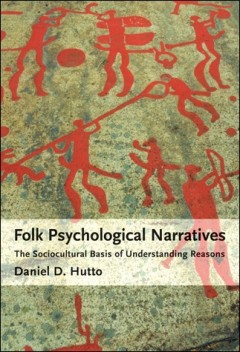
Folk psychological narratives The Sociocultural Basis of Understanding Reasons
An argument that challenges the dominant "theory theory" and simulation theory approaches to folk psychology by claiming that our everyday understanding of intentional actions done for reasons is acquired by exposure to and engaging in specific kinds of n.
- Edition
- -
- ISBN/ISSN
- -
- Collation
- 1 online resource (xvii, 402 pages)
- Series Title
- -
- Call Number
- -

Children and pensions
An analysis of the effect of public pension schemes on a country's fertility rate and a proposal for policies to reform pension coverage in light of this.The rapidly aging populations of many developed countries--most notably Japan and member countries of the European Union--present obvious problems for the public pension plans of these countries. Not only will there be disproportionately fewer…
- Edition
- -
- ISBN/ISSN
- -
- Collation
- 1 online resource (xxiii, 204 pages) : illustrations.
- Series Title
- -
- Call Number
- -
 Computer Science, Information & General Works
Computer Science, Information & General Works  Philosophy & Psychology
Philosophy & Psychology  Religion
Religion  Social Sciences
Social Sciences  Language
Language  Pure Science
Pure Science  Applied Sciences
Applied Sciences  Art & Recreation
Art & Recreation  Literature
Literature  History & Geography
History & Geography